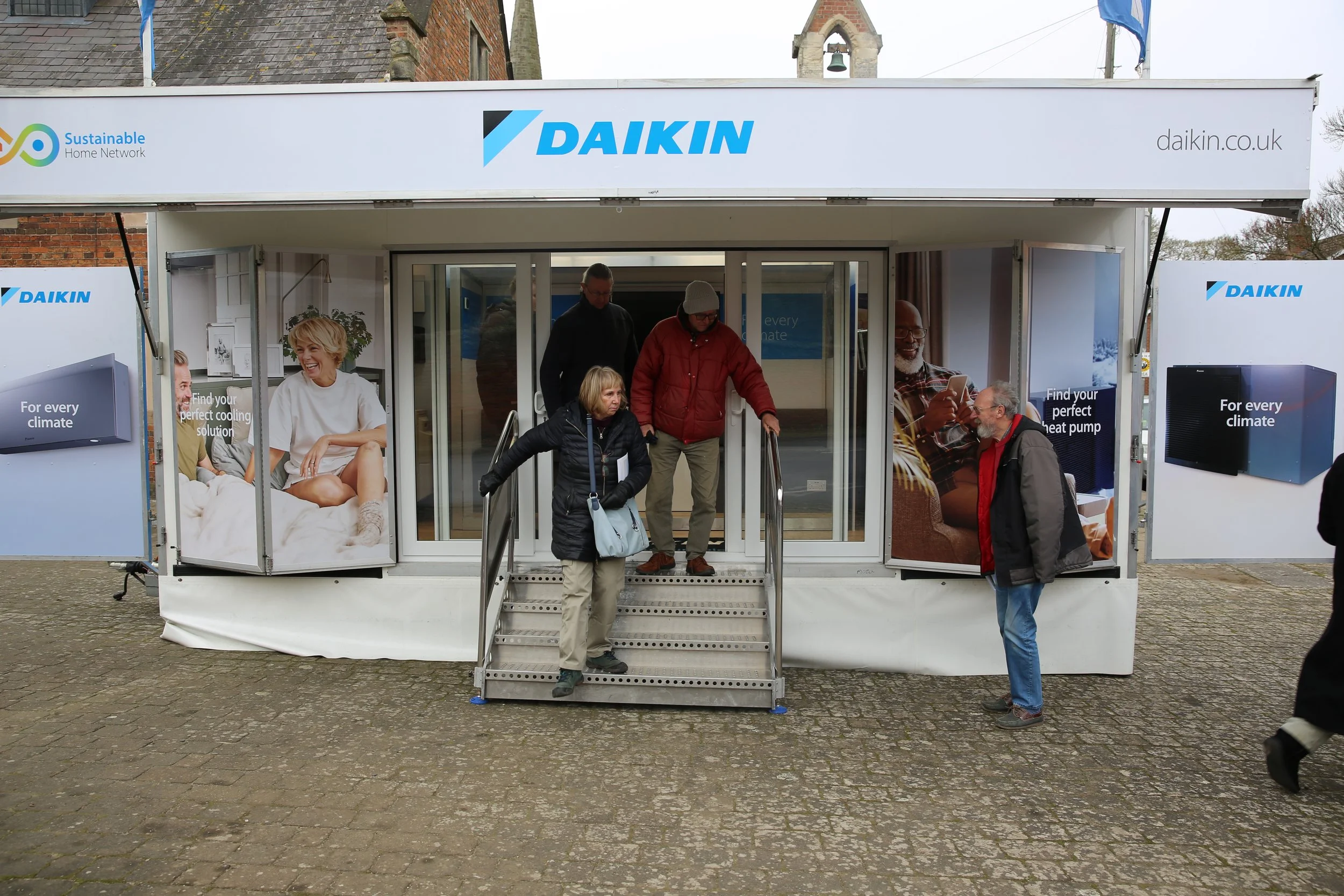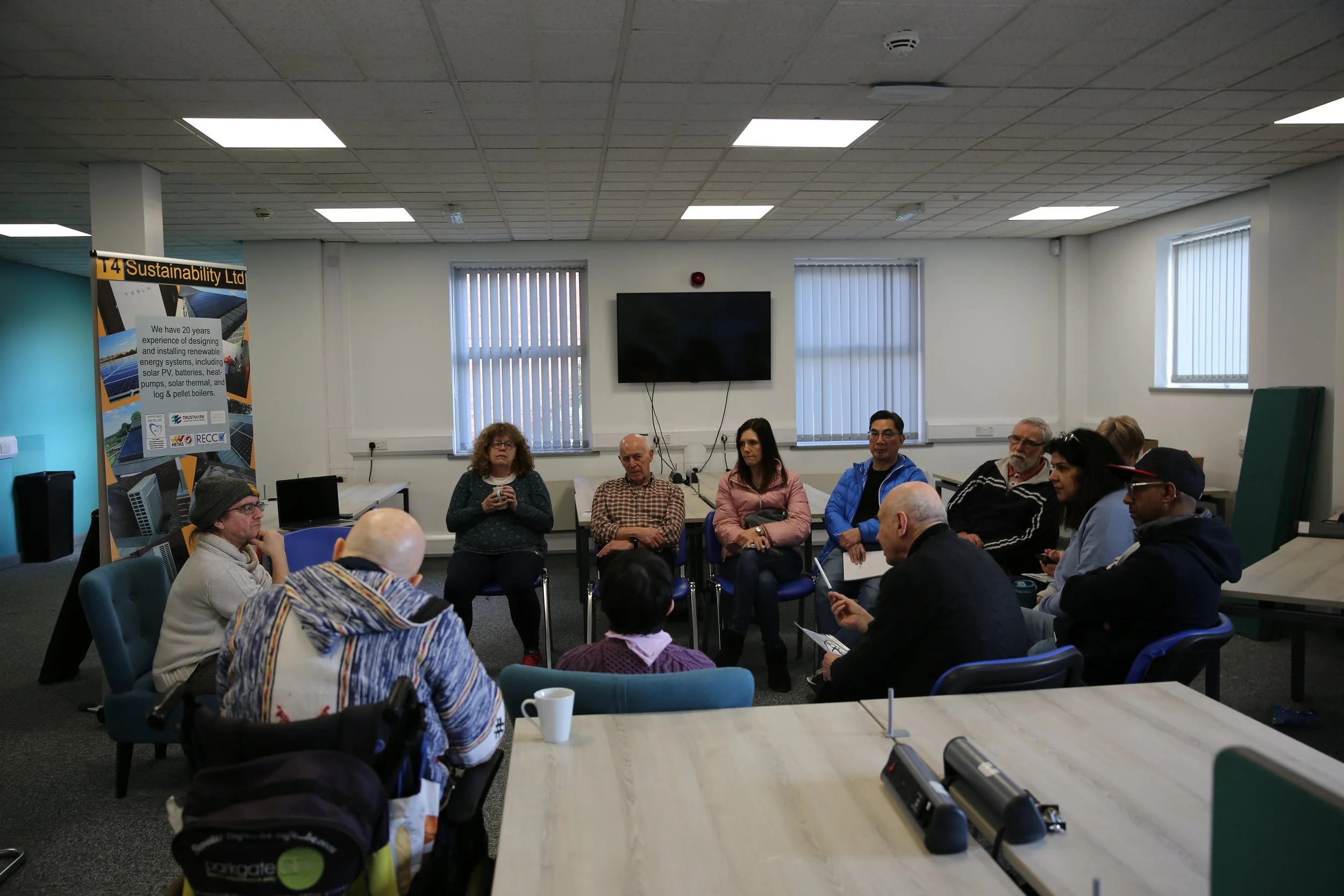HEAT Hub Government Demonstrator: Tailored Support is Enhancing Net Zero Policies
Following the successful completion of the Home Energy Advice Team (HEAT) Hub Government demonstrator project, funding has since been sourced from Energy Redress to enable the launch phase 2 of the HEAT Hub. In-person expert advice via workshops, webinars, and events will continue to give local homeowners access to a range of support, from practical, hands-on sessions to comprehensive, step-by-step Home Energy plans.
The HEAT Hub Demonstrator Project
The HEAT Hub was originally launched as a Local Energy Advice Demonstrator (LEAD) programme. It was one of 36 government-funded pilot schemes aimed at delivering in-person energy advice for homeowners across the Derbyshire and Nottinghamshire (D2N2) area. Led by Nottingham Energy Partnership (NEP) partnered with Marches Energy Agency (MEA), and supported by the Local Authority Energy Partnership (LAEP), tailored support was provided to homeowners in off-gas grid homes, conservation areas, and energy inefficient homes with and EPC rating of D-G.
The success of the initial 2-year, HEAT Hub project has demonstrated how net zero policies can stimulate action from consumers, rather than solely by the Government. The in-person delivery model was found to be a more proactive approach to public engagement, alongside providing information and advice which unlocked and accelerated carbon reduction from self-funding households and positively impacted the industry.
HEAT Hub: Future-Fit Home Energy Plan Consultation
Emphasis on tailored, in-person advice
HEAT Hub’s team of industry experts were able to provide personalised retrofit advice and educate homeowners on key considerations such as fabric-first approach to insulation, the recommended order of work, and realistic estimates of costs and savings from the outset empowered individuals to feel confident in the retrofit process. and ensured they didn’t feel overwhelmed in managing their journey for improving the energy efficiency of their home.
Ensuring that energy efficiency improvements are tailored specifically to each home results in more cost-effective and efficient solutions. From the outset, homeowners can avoid unnecessary expenses and gain a better understanding of which measures would work best for them, ultimately leading to a more comfortable, affordable and healthier home in the long run.
The Range of Free Services Offered by Heat Hub
-
HEAT Hub developed a Home Energy Plan based on in-depth retrofit survey assessing heat loss, running costs, and EPC ratings, compiled into a step-by-step plan with costs, savings, detailed drawings & more.
Specialised advice for heritage homes and conservation areas
Recommendations for insulation, as well as renewable systems like solar PV panels and low carbon heating like heat pumps
Offered one-on-one consultations to go over the plan and answer any questions goes here
-
Events led by local experts, covering topics such as the fabric-first principle to insulation
Workshops covering areas such as low carbon technologies, as well as practical DIY skills such as installing Internal Wall Insulation
-
Clients received recommendations from trusted installers and met them in-person.
HEAT Hub worked with green energy experts T4 Sustainability, UK Hempcrete and Daikin to deliver these sessions, showcase materials and technologies, advice on grants such as the Boiler Upgrade Scheme, and address client inquiries.
-
Proven Impact and Long-Term Benefits
Throughout the course of HEAT Hub, over 1,980 residents attended workshops and events, 437 retrofit surveys and Future Fit Home Energy Plans were completed, with over 227 energy-saving measures installed or in progress for 118 homes with many more expected post-project.
Even with results on the number of installations still outstanding, the value for money of the HEAT Hub delivery model exceeds the cost by at least 50% of current government grant schemes for the installation of energy saving measures.
Additionally, The HEAT Hub evidenced the potential to generate greater carbon and energy bill savings as householders used their tailored plans and knowledge to implement whole house principles of retrofit and install multiple measures, compared to delivery via Government schemes such as ECO and HUG.
For example, a resident in Bunny, Nottinghamshire was interested in organising a community seminar. This event was attended by over 40 homeowners and focused on renewable technologies, with many considering installation for their homes. It also sparked a discussion on potential community renewable energy initiatives, including wind turbines, solar panels and hydro generation to serve their homes. When one person speaks up, it encourages others to take part in the conversation; open discussion and hearing other people’s tangible experiences can be a key component in helping people better understand retrofit.
Event in Bunny, Nottinghamshire
Home Energy Plans Increase Accessibility to Retrofit
Personalised advice and face-to-face consultation combined with bespoke plans, hands-on workshops, and trusted local contractor connections gave households the confidence to act.
In fact, nearly half of those who received a follow-up consultation went on to install energy-saving measures such as solid wall insulation, solar panels, and air source heat pumps. This enhanced level of support, which enables a more informed householder, should be the benchmark for all residents.
The Demand for HEAT Hub
In 2020, the UK Energy Research Centre estimated that almost half of the UK’s 29 million homes would need to be retrofitted to meet the 2050 net zero target. Government schemes like HUG and the Boiler Upgrade Scheme have aimed to encourage retrofitting measures such as insulation and low carbon energy. However, despite these efforts, the rate of retrofit is not on track to meet the goal. To accelerate this transition, it is crucial to address the specific needs of homeowners, especially those with “hard-to-treat” properties.
Informing people, offering appropriate advice, and making them feel supported are key steps we need to take alongside government grants and schemes. Together, we can break down barriers to retrofitting, making the transition to cleaner energy and more comfortable housing easier to navigate.













